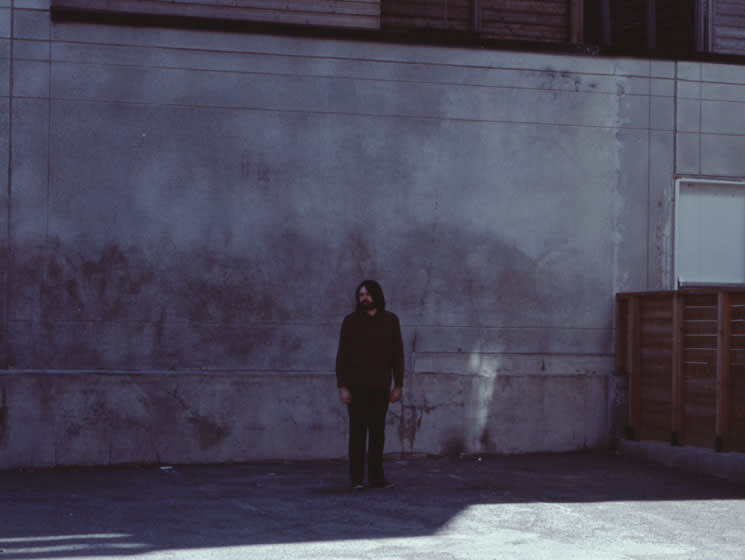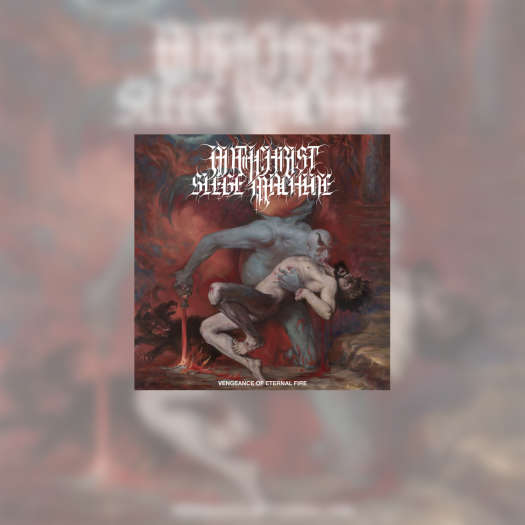Being born and raised in the small coastal town of Glovertown, NL has undeniably shaped Aaron Powell's art; it has been distinctly apparent in Fog Lake's cerulean sound since the sodden gossamer drone of his debut, Farther Reaches, in 2013. Captain, the project's fifth album in just six years, retains Powell's misty-eyed, homemade aesthetic with a ripple of newly acquired assuredness.
After a brief stint testing the waters in Montreal last year, Powell decided to permanently relocate this past winter. Before leaving, though, Powell wanted to make one more album from his rural birthplace of just over two thousand people. Speaking to Exclaim! from Montreal, Powell says leaving Newfoundland was bittersweet, and he wanted Captain to be "a sort of farewell to where I grew up."
"I'll miss the ocean and I'll miss long walks in the woods. Even just getting drunk in the shed and playing darts with your friends — it's not like that in Montreal, you know? It's got its own sense of warmth and sense of home. It'll always be home and I'll miss it. There's a sense of isolation, and it's beautiful, and you don't get that in Montreal.
"Maybe at four in the morning. Maybe that's the closest you'll ever get to being alone here," Powell adds.
The feelings of solitude have always been a defining characteristic for Fog Lake's sound and lyrical themes since the lucid acoustic guitar strums on Farther Reaches' title track ("What's it like to have a friend — how do I reach you?") to the gilded ambience of "Push" ("I don't wanna be alone right now") from last year's Dragonchaser. While Powell still sings about the anxiety surrounding seclusion with his fragile, creaking voice, Captain occasionally reaches through the melancholic gloom towards hopefulness and anticipation for the future with its "more summery, brighter and less dirge-y" arrangements.
"I wanted to bring down the reverb a bit, make it bit drier-sounding and a little more raw. I tried to avoid using pedals and post-effects and to make something that was more organic and more acoustic. I wanted to do one more album that was really piano-heavy. That was a big reason why I went back to Newfoundland to record, because I wanted to use the piano again that I had back home."
The rich grand piano tones on the dishevelled "Monster" and the buoyant "Serotonin" have this sunnier emphasis, gently opposing Powell's conflicting sombre lyricism. On the other end of the spectrum, Captain's closer, "Dying Out East," is an homage to Powell's childhood home by perfectly capturing Fog Lake's unique blend of inwardly doleful piano with downbeat, softly strummed guitar and chirring background noises.
"'Dying Out East' just really sums up my time making Captain. I've made a lot of records hoping to achieve some sort of closure on traumatic experiences or bad things that have happened. And that song definitely gave me some closure and hope for the future instead of like — it doesn't end on a cliffhanger, you know what I mean?
"It's kind of like a joke, like I'm 'dying out east' — it's just not gonna happen now, probably, but I'll still romanticize it in my head."
Captain is out now via Stack Your Roster.
After a brief stint testing the waters in Montreal last year, Powell decided to permanently relocate this past winter. Before leaving, though, Powell wanted to make one more album from his rural birthplace of just over two thousand people. Speaking to Exclaim! from Montreal, Powell says leaving Newfoundland was bittersweet, and he wanted Captain to be "a sort of farewell to where I grew up."
"I'll miss the ocean and I'll miss long walks in the woods. Even just getting drunk in the shed and playing darts with your friends — it's not like that in Montreal, you know? It's got its own sense of warmth and sense of home. It'll always be home and I'll miss it. There's a sense of isolation, and it's beautiful, and you don't get that in Montreal.
"Maybe at four in the morning. Maybe that's the closest you'll ever get to being alone here," Powell adds.
The feelings of solitude have always been a defining characteristic for Fog Lake's sound and lyrical themes since the lucid acoustic guitar strums on Farther Reaches' title track ("What's it like to have a friend — how do I reach you?") to the gilded ambience of "Push" ("I don't wanna be alone right now") from last year's Dragonchaser. While Powell still sings about the anxiety surrounding seclusion with his fragile, creaking voice, Captain occasionally reaches through the melancholic gloom towards hopefulness and anticipation for the future with its "more summery, brighter and less dirge-y" arrangements.
"I wanted to bring down the reverb a bit, make it bit drier-sounding and a little more raw. I tried to avoid using pedals and post-effects and to make something that was more organic and more acoustic. I wanted to do one more album that was really piano-heavy. That was a big reason why I went back to Newfoundland to record, because I wanted to use the piano again that I had back home."
The rich grand piano tones on the dishevelled "Monster" and the buoyant "Serotonin" have this sunnier emphasis, gently opposing Powell's conflicting sombre lyricism. On the other end of the spectrum, Captain's closer, "Dying Out East," is an homage to Powell's childhood home by perfectly capturing Fog Lake's unique blend of inwardly doleful piano with downbeat, softly strummed guitar and chirring background noises.
"'Dying Out East' just really sums up my time making Captain. I've made a lot of records hoping to achieve some sort of closure on traumatic experiences or bad things that have happened. And that song definitely gave me some closure and hope for the future instead of like — it doesn't end on a cliffhanger, you know what I mean?
"It's kind of like a joke, like I'm 'dying out east' — it's just not gonna happen now, probably, but I'll still romanticize it in my head."
Captain is out now via Stack Your Roster.




